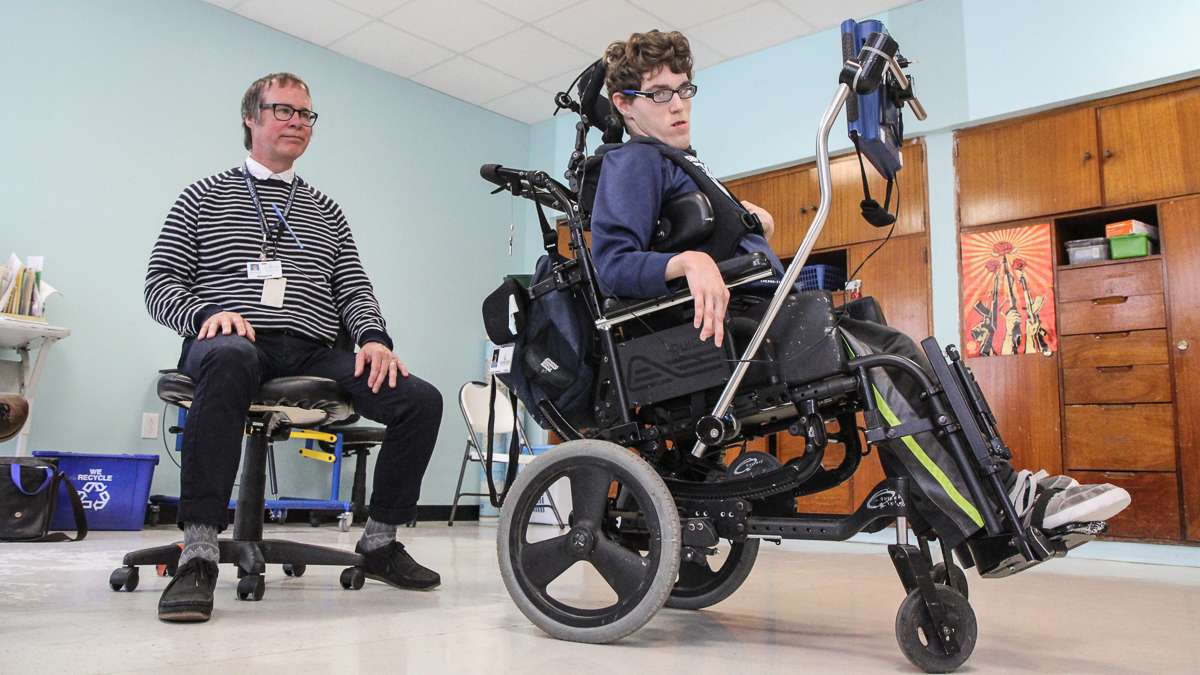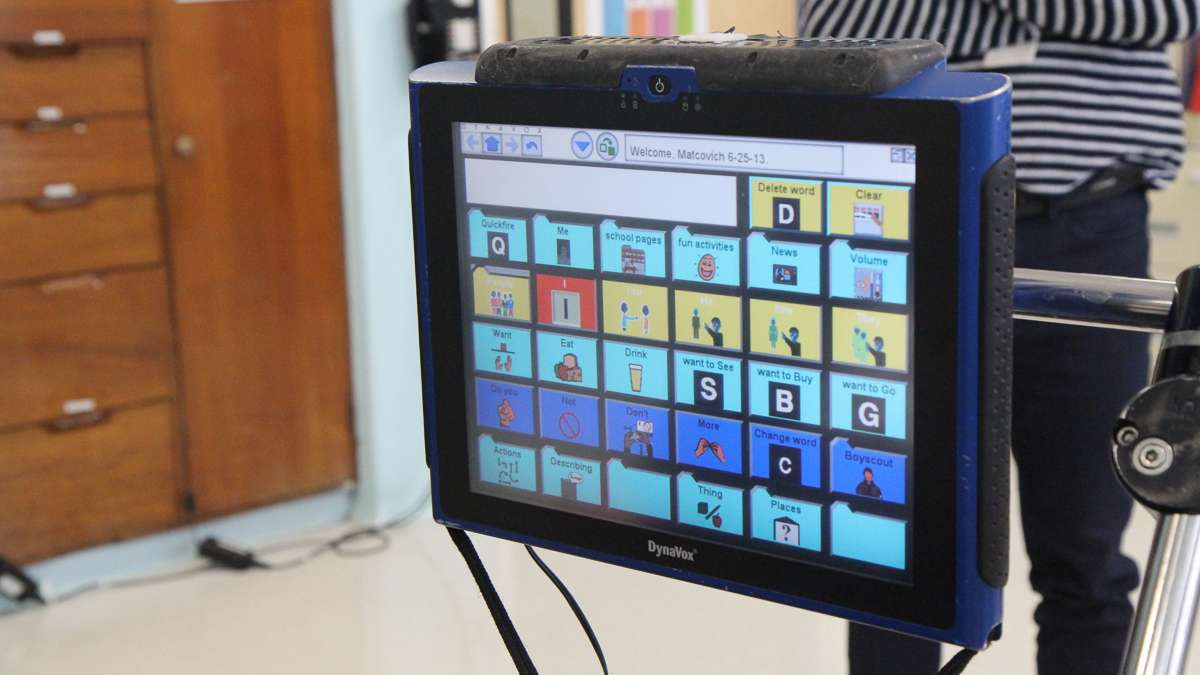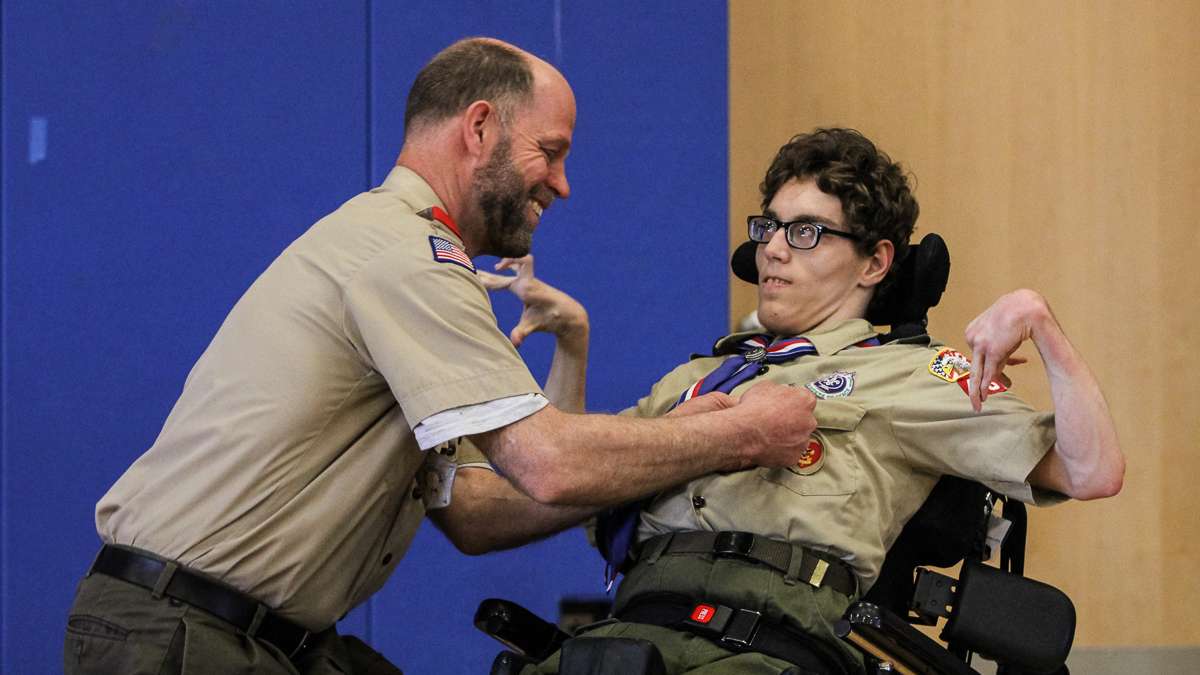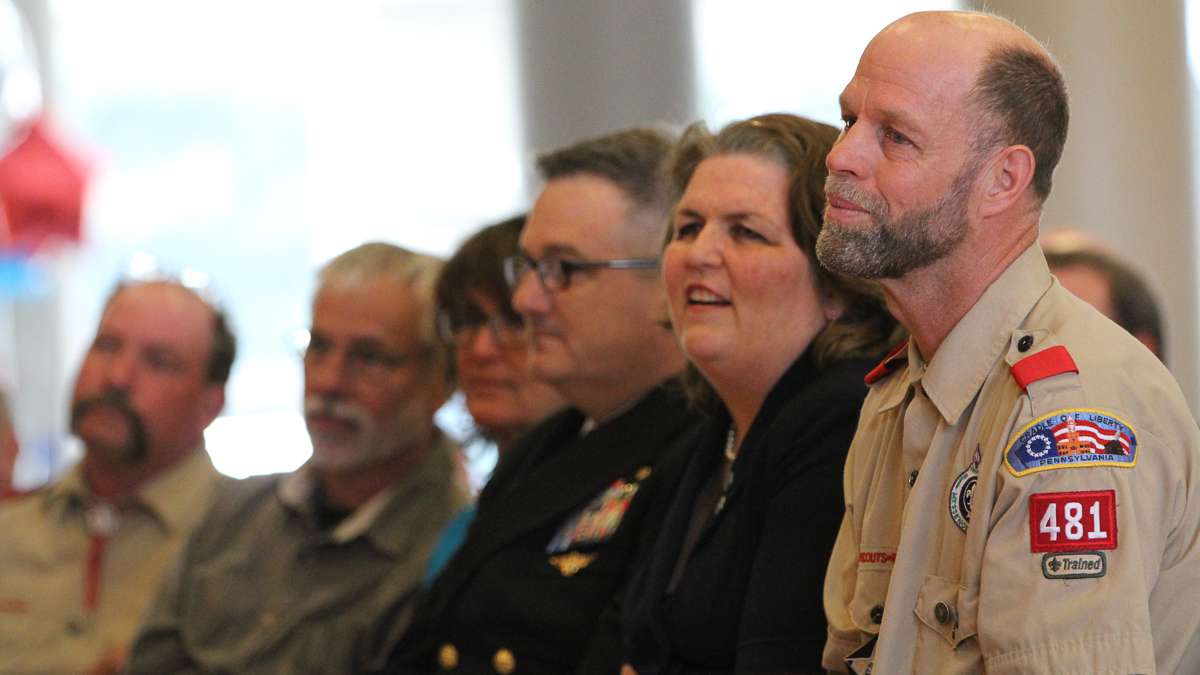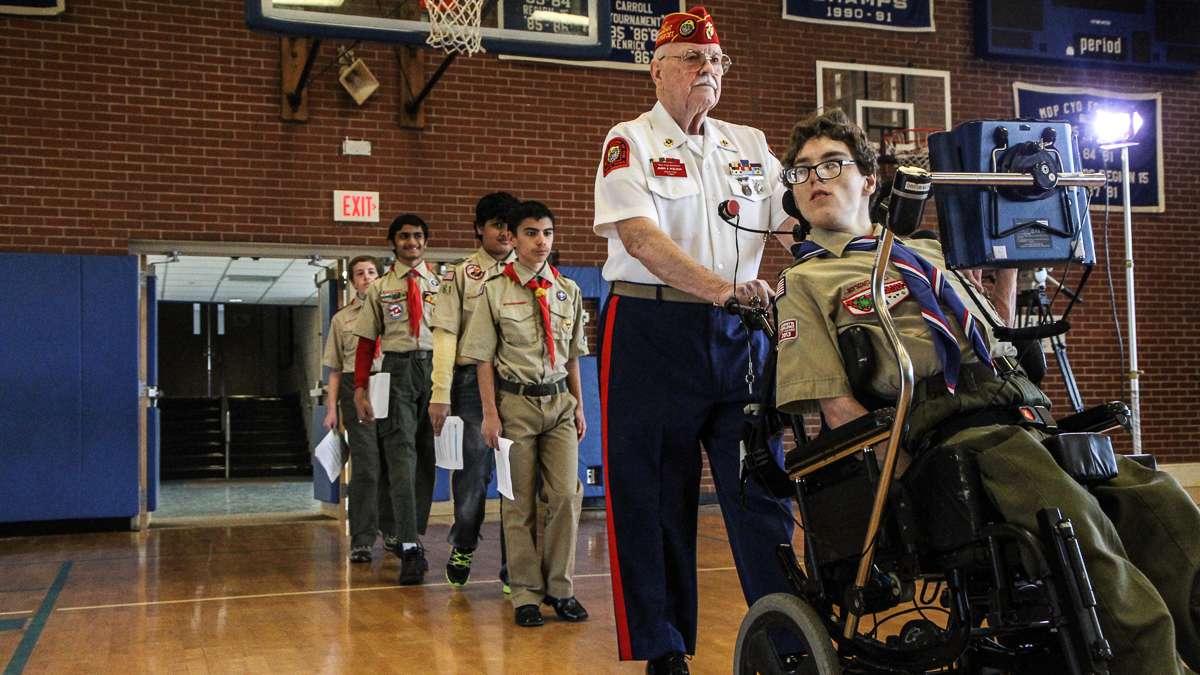Becoming an Eagle Scout, one word at a time
ListenOne young man’s unique path to the pinnacle of scouting.
Kevin Rafferty recalls the day that 20-year-old Christian Matcovich completed his Eagle Scout Board of Review last September—the final step in becoming essentially a Navy Seal of the scouting world.
“We had two interviews, and the last one was wild,” said Rafferty. “This was a big deal this, it was the final speech.”
As Kevin tells it, inside the room five men in uniform were seated behind a long wooden table. Christian, who wears thick, dark-framed glasses and curly mop of hair, dressed in his light-brown scout shirt and red handkerchief, was is dead center on the other side.
“Time is rolling along, and I can feel the tension and the fatigue,” Rafferty remembers. “It’s getting harder for Christian. His body wasn’t not cooperating, but every question that’s thrown at him, he answers.”
See, Christian’s body actually never cooperates. And he is not your typical Eagle Scout candidate either.
He suffers from spastic quadriplegic cerebral palsy—the most severe kind. He is bound to a wheelchair, as most of his body has about the same amount of muscle control as a three-month-old baby. He’s completely immobile, fed through a tube, and can’t speak on his own. All of which makes his achievement all the more remarkable.
Every year, millions of boys earn badges for activities like learning to camp or hiking through the woods—character building exercises put on by the Boy Scouts of America. But very few (like less than 10 percent) remain dedicated enough to become Eagle Scouts, the organization’s highest level of achievement.
Matcovich earned over 21 merit badges—accomplishing feats like boot camp, shooting a gun and camping on the beach. He served as a troop leader for six months and carried out a community service project.
Sure, there was a string attached to the gun trigger that someone else pulled. His mother pushed his chair through Valley Forge, where he camped in the winter. But, despite the help he got, Bob and Mary Matcovich say their son earned it.
“Don’t make assumptions, because that’s been done in the past,” said Mary Matcovich. “And until you meet him and see what he’s capable of…he persevered. He did this.”
One of the ways he did was through an augmentative communication device. Christian’s parents say mentally he is sharp as a tack, but because he can’t speak, he relies on a digital voice generator to get his ideas across.
Attached to the front of his chair is a computer screen which scans through phrases like “family” or “hobbies.” Next to Christian’s head is a large red button, and when the computer lands on the category he wants, he leans to click it. A new page opens with more specific options. He waits, clicks, until eventually the digital voice pipes up.
Back in September, as the Board of Review asked him questions like why he deserved the prestigious Eagle Scout honor, Christian scanned through his pre-loaded phrases to come up with the answer.
“My enthusiasm for life, and for scouting is second to none,” he said using his digital voice. “I am brave and put maximum effort into all my activities. I am also a well-rounded young man.”
But, the same device that allows him to recite his Scout Pledge or talk to his troop isn’t without issues, like if he misses a head click, he has to wait for the words to cycle back through, which can be tedious and exhausting.
David McNaughton is an education professor at Penn State University, and part of a nationwide research consortium on assistive communication devices.
“You know, in many ways we’ve increased our capabilities to serve individuals like Christian, but we’ve also still face some of the same challenges, and there’s a need for ongoing research,” he said.
He says that in some ways, research depends on the general population. When interest in, say, speech recognition technology explodes, the disabled community directly benefits. As the technology gets cheaper, more options become available.
“The ongoing challenge we face for individuals with severe physical disabilities is identifying controllable movements that they can use to make selections with the AAC device,” said McNaughton.
For instance, eye gaze technology would let Christian voice a word just by looking at it on a screen, but he can’t maintain eye contact long enough. Brainwave reading technology is, at best, a distant new frontier.
Instead, McNaughton and researchers are attempting to harness something more instinctual.
“Often for somebody like Christian, his parents when interacting with him know that when he looks at a particular location with a particular expression on his face that there’s something that he wants,” said McNaughton.
What the group is looking into is technology that can act the same way, reading Christian’s face to help him get his words out faster. McNaughton hopes to be testing prototypes within five years.
For now though, it’s safe to say Christian has made the most with what he has. Within a few hours of his board review last September, he found out he’d passed the final test.
Two weeks ago, his elite status became official during a ceremony in his native King of Prussia.
WHYY is your source for fact-based, in-depth journalism and information. As a nonprofit organization, we rely on financial support from readers like you. Please give today.



